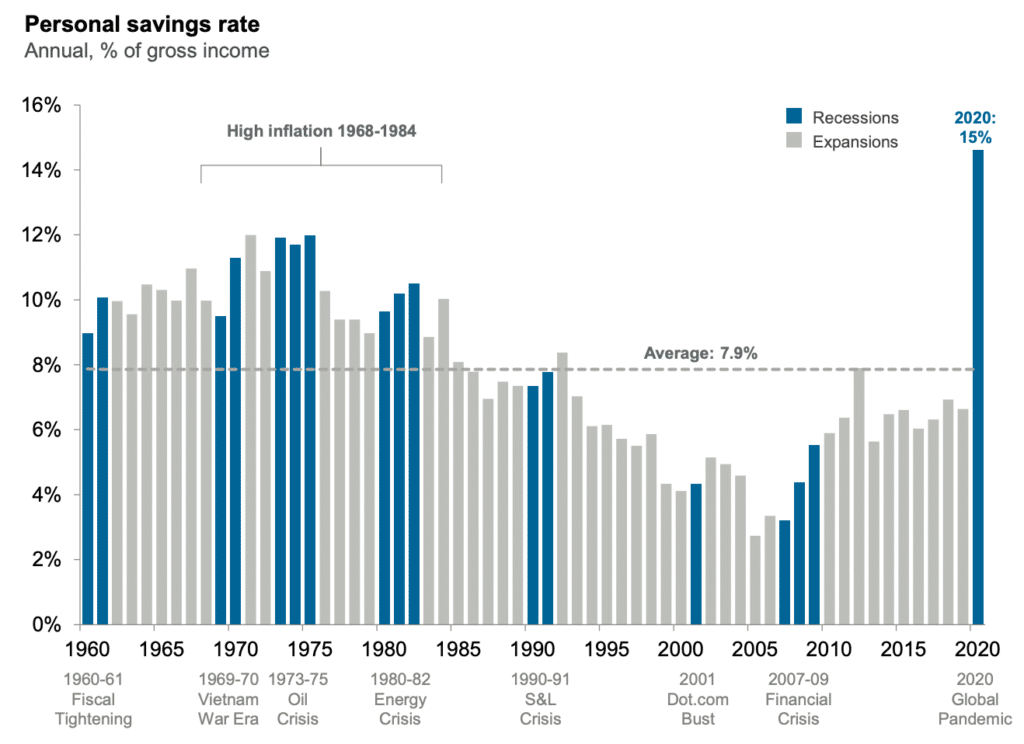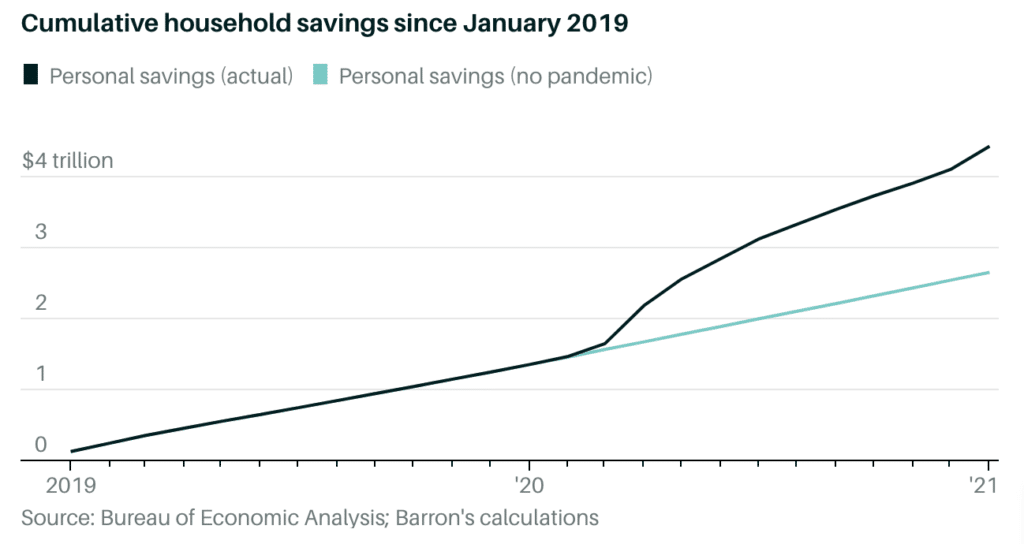The latest round of stimulus checks was sent out in the last couple of weeks. This is now the third time in the last year that money has been sent directly from the government to the bank accounts of eligible individuals. While this money was sorely needed for many, we’re still unsure what the ramifications will be for the overall economy.
For the first time during a recession, the average annual savings rate in the U.S. hit a 60-year high.

Typically during a recession, the economy tightens and people lose their jobs. When people lose their jobs their income drops and they lose their ability to save money. However, this recession was different. While millions lost their jobs last year, the stimulus checks and increased unemployment benefits buoyed the incomes of a lot of people. Combine government aid with the economic shutdown which caused spending to decline to a fraction of what it would have been otherwise and you get a savings explosion.
Barron’s shows that Americans saved $1.8 trillion more last year than they would have had there not been a pandemic.

These statistics bode well for the financial situations of millions of people.
Yet, with more vaccines being administered every day and all of this cash burning a hole in everyone’s pockets, many are worried about inflation running rampant when the economy fully reopens. It’s possible we could see a huge spending boom which could lead to significant inflation.
Inflation is the basic economic concept that things get more expensive over time. But there’s a lot of nuance in this simple idea which actually makes it quite complicated. Not everything goes up equally, and in fact, some things don’t go up.

Shout-out to TVs — good on them for being one of the most beloved items in our homes and consistently lowering their cost over time. Tuition and rent have some work to do.
Even expert economists don’t completely understand where inflation comes from, how to predict it, or how to control it. We do know that it exists and needs to be planned for. Money just sitting in a checking account would lose half its value in 23 years with an overall 3% inflation rate.
So, how do you combat inflation?
The simple, straightforward answer is to buy assets. As the price of stuff increases, it’s good to be the owner of that stuff.
The stock market is a great hedge against inflation. The primary point of investing your money is to keep up with or outpace the rising standard of living. Investing is not just about building wealth, it’s also about not destroying it.

Although stocks have historically underperformed slightly during times of rising inflation, for long-term investors periods of lower market performance provide great buying opportunities.
A house, which is the biggest financial asset for most Americans, is also great to have during times of high inflation. Not only should the value of the house increase, but the value of the debt you owe will decrease. Inflation helps counteract the interest payments making the borrowing costs less and causing the value of your monthly payment to decrease over time.
Whether we end up going into a period of high inflation or not, I’m not sure any real changes need to be made to your financial plan. Most of the time complex problems such as inflation don’t require complex solutions. Sometimes the best solution is the simplest one.
Thanks for reading!

